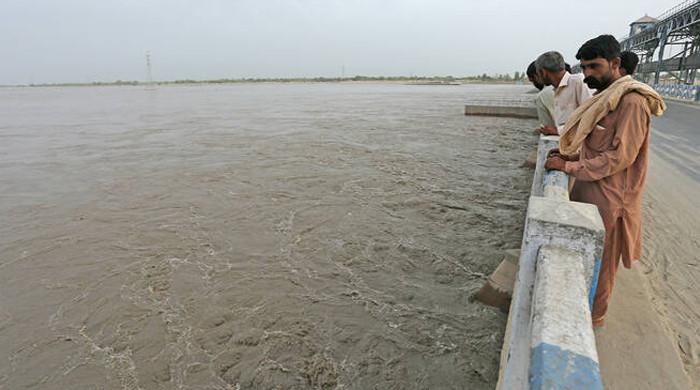India Alerts Pakistan to Potential Sutlej River Flood
On Monday, India communicated with Pakistan for the second time in a single day, cautioning Islamabad about a possible flooding situation in the Sutlej River. This followed an earlier warning regarding the Tawi River in Jammu, according to diplomatic sources.
The Indian High Commission in Islamabad contacted the Ministry of Foreign Affairs to provide details concerning potential flood circumstances in the Sutlej River, the sources indicated.
The sources noted that India has historically shared such information with Pakistan during previous flood incidents.
In a separate statement, the Foreign Office mentioned that India communicated flood alerts through diplomatic channels prior to this most recent contact, instead of utilizing the bilateral commission as stipulated by the Indus Waters Treaty (IWT), as reported by Radio Pakistan.
The FO restated that India is bound to adhere to all clauses of the treaty completely.
It stated that India’s independent declaration to suspend the IWT is a severe breach of international law and might have substantial adverse effects on peace and stability in South Asia.
Significantly, India initially reached out to Pakistan hours earlier, following the May military confrontation, to share data on a possible major flood in the Tawi River at Jammu.
The Indian High Commission in Islamabad conveyed the alert, with the communication occurring on the morning of Sunday, August 24, the sources confirmed.
Following the alert, Pakistani authorities disseminated warnings based on the details supplied by India, the sources verified.
Following the death of 26 individuals in the Pahalgam region of Indian Illegally Occupied Jammu and Kashmir (IIOJK) in April, India put the IWT with Pakistan on hold.
New Delhi holds Islamabad responsible for organizing the deadly militant assault, a charge that Pakistan refutes.
Based on these unfounded accusations, India started a conflict against Pakistan in May, resulting in the most intense military clash in decades, until a ceasefire was negotiated by the US.
The water treaty had endured three conflicts and other disputes between the two rivals, while withstanding numerous shifts in diplomatic relations.
Reuters reported on May 16 that Delhi is assessing projects that would probably diminish the flow of water into Pakistan from rivers allocated to that country.
India has also stated that it will “keep the treaty in abeyance until Pakistan credibly and irrevocably abjures its support for cross-border terrorism.”
Conversely, Islamabad asserts that “any attempt to stop or divert the flow of water belonging to Pakistan” will be deemed “an act of war”.
The nuclear-armed nations have differing opinions on the utilization of water from rivers that stream downstream from India into the Indus River basin in Pakistan.
The utilization of the water is regulated by the IWT, which was brokered by the World Bank and signed by the nations in September 1960.
The agreement divided the Indus and its tributaries between the two countries and regulated water sharing. India was granted the use of water from three eastern rivers — Sutlej, Beas and Ravi — while Pakistan was granted most of the three western rivers — Indus, Jhelum and Chenab.
The treaty lacks a provision for either nation to unilaterally suspend or end the pact, which possesses explicit dispute resolution mechanisms.



Comments (0)
No comments yet. Be the first to comment!
Leave a Comment